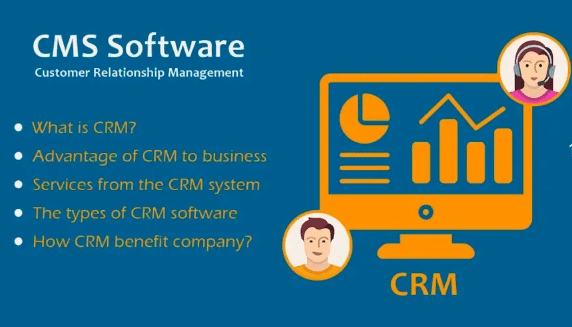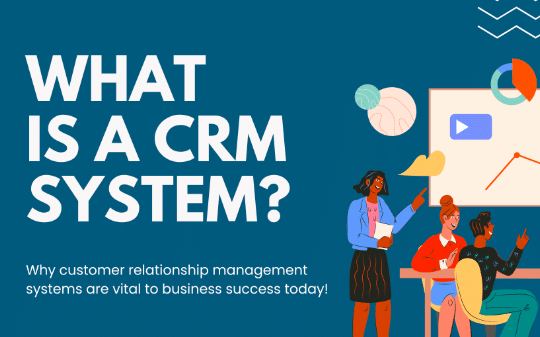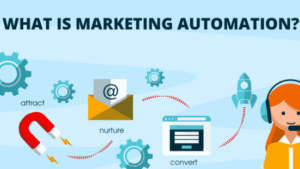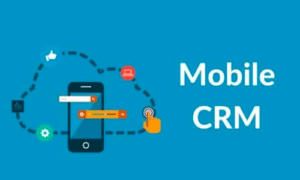crm.klikjabar.id – What Is CRM? – In today’s fast-paced business landscape, understanding and nurturing customer relationships is crucial for sustained success. This is where Customer Relationship Management (CRM) comes into play.
CRM is a powerful tool that helps businesses manage interactions with current and potential customers, streamline processes, and boost customer satisfaction. In this article, we’ll delve into the world of CM, answering the most critical questions while providing expert insights and practical tips to leverage CM for your business’s growth.
1. The Evolution of CRM – From Rolodex to Modern Solutions

In this section, we’ll explore the history of CRM, tracing its evolution from traditional Rolodex systems to the sophisticated cloud-based CM platforms of today. We’ll discuss the significance of this transformation and how modern CM systems have revolutionized customer management.
2. Understanding the Core Concepts of CRM

In this section, we’ll break down the fundamental concepts of CM. We’ll explore customer data management, lead generation, sales automation, and the importance of data analytics in RM strategies. Learn how these elements work together to create a seamless customer experience.
3. CRM Benefits for Your Business
Discover the vast array of benefits RM can offer your business. From enhanced customer retention and improved sales performance to increased productivity and data-driven decision-making, we’ll explore how RM can become a game-changer for your company.
4. Different Types of CRM Systems
There isn’t a one-size-fits-all RM solution. In this section, we’ll explore the various types of RM systems available, including operational, analytical, and collaborative RM. Understand the differences and find the one that aligns best with your business needs.
5. On-Premise vs. Cloud-Based CRM
When choosing a RM system, you must decide between on-premise and cloud-based solutions. We’ll discuss the pros and cons of each option, ensuring you make an informed decision that suits your business requirements.
6. Implementing CRM Successfully
Implementing RM effectively is crucial for reaping its full benefits. In this section, we’ll outline a step-by-step guide to successful RM implementation, including crucial factors such as user training, data migration, and integration with existing systems.
7. Choosing the Right CRM Vendor
With a plethora of RM vendors in the market, making the right choice can be challenging. We’ll provide valuable tips and considerations to help you select the ideal CRM vendor that meets your budget, functionality, and support needs.
8. Overcoming CRM Adoption Challenges
Many businesses struggle with RM adoption among employees. Learn about the common challenges and the best practices to overcome resistance and ensure smooth RM adoption across your organization.
9. CRM Best Practices for Sales Teams
Sales teams play a pivotal role in CR implementation. We’ll delve into the best practices for sales teams to leverage CRM effectively, improve lead nurturing, and boost conversion rates.
10. CRM for Marketing Excellence
Discover how CR can enhance your marketing efforts. We’ll discuss personalized marketing, customer segmentation, and campaign automation to ensure you reach the right audience with the right message.
11. CRM and Customer Service
Exceptional customer service is the cornerstone of a successful business. In this section, we’ll explore how CR can empower your customer service teams to deliver top-notch support and build lasting customer loyalty.
12. Data Security and Privacy in CRM
As CR involves handling sensitive customer data, ensuring data security and privacy is paramount. We’ll discuss best practices to safeguard customer information and comply with data protection regulations.
13. CRM Integration with Other Business Systems
CM doesn’t operate in isolation. Integration with other business systems is crucial for seamless operations. We’ll discuss the importance of CM integration and how it enhances overall business efficiency.
14. Measuring CRM Success with Key Metrics
To gauge the effectiveness of your CM strategy, you need to track key performance indicators (KPIs). We’ll identify the essential CR metrics and how to interpret them to measure your CRM’s success.
15. CRM Trends to Watch in [Current Year]
The CR landscape is constantly evolving. In this section, we’ll explore the latest trends and innovations shaping the CRM industry in [current year]. Stay ahead of the competition by embracing these trends.
FAQs (Frequently Asked Questions)
Q: What is CRM?
A: CR, short for Customer Relationship Management, refers to the strategies, processes, and technologies businesses use to manage and analyze customer interactions throughout their lifecycle. It aims to improve customer satisfaction, retention, and overall business profitability.
Q: How does CRM benefit businesses?
A: CM offers a multitude of benefits, including better customer understanding, personalized marketing, streamlined sales processes, improved customer service, data-driven decision-making, and increased employee productivity.
Q: Are CRM systems suitable for small businesses?
A: Absolutely! CM systems are not limited to large enterprises. Many CM vendors offer solutions tailored to the needs and budgets of small and medium-sized businesses, allowing them to compete effectively in the market.
Q: What are the common challenges in CM implementation?
A: CM implementation may face challenges such as employee resistance, data migration issues, lack of user training, and selecting the right CRM vendor. Overcoming these challenges is essential for successful CM adoption.
Q: Can CR be integrated with existing business systems?
A: Yes, RM can be integrated with various existing systems, such as ERP (Enterprise Resource Planning), marketing automation, and e-commerce platforms. Integration enhances data sharing and streamlines business processes.
Q: How can I measure the success of my CR strategy?
A: Key metrics such as customer retention rate, customer satisfaction score, lead conversion rate, and sales growth are essential in evaluating the success of your CM implementation.
Conclusion
What Is CRM? It’s a powerful tool that empowers businesses to build stronger relationships with customers, improve operational efficiency, and drive growth. By understanding the core concepts, benefits, and best practices of CR, you can transform your business and stay ahead in today’s competitive landscape.
Remember, successful CM implementation requires careful planning, dedication, and continuous evaluation. Embrace CR as an opportunity to create unparalleled customer experiences and pave the way for long-term success.


